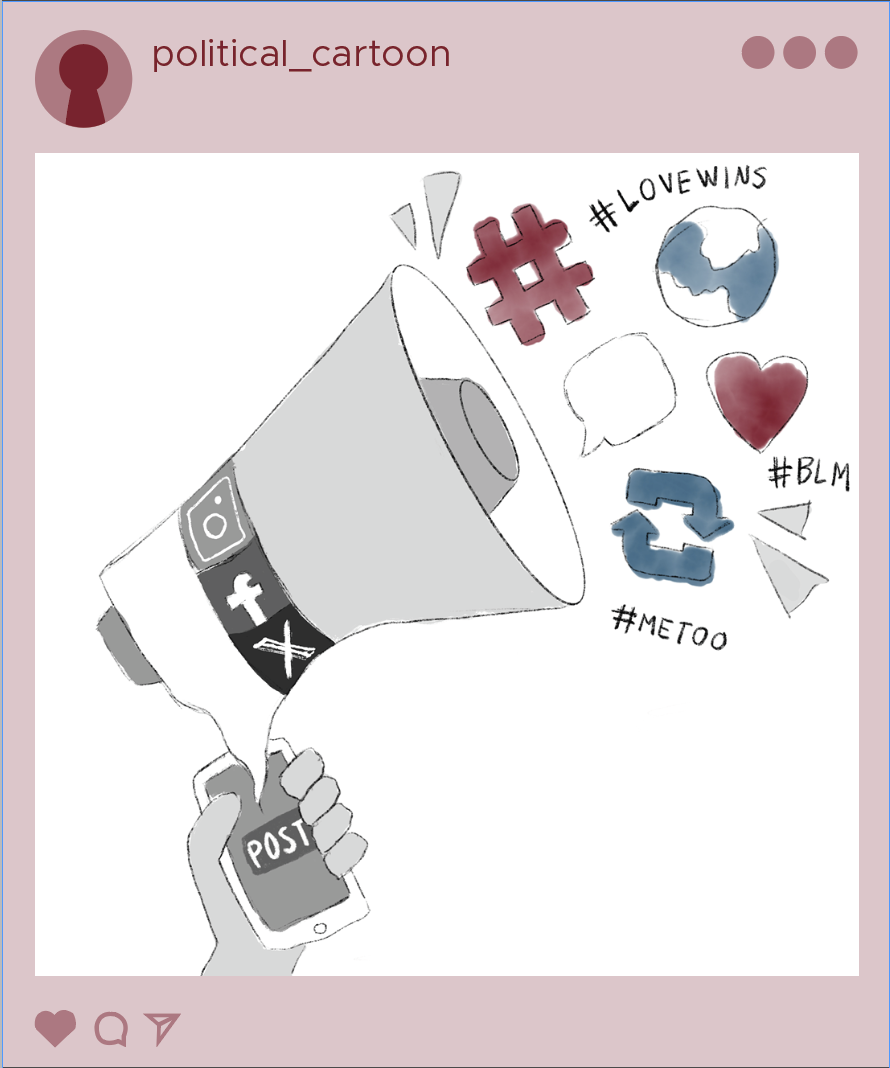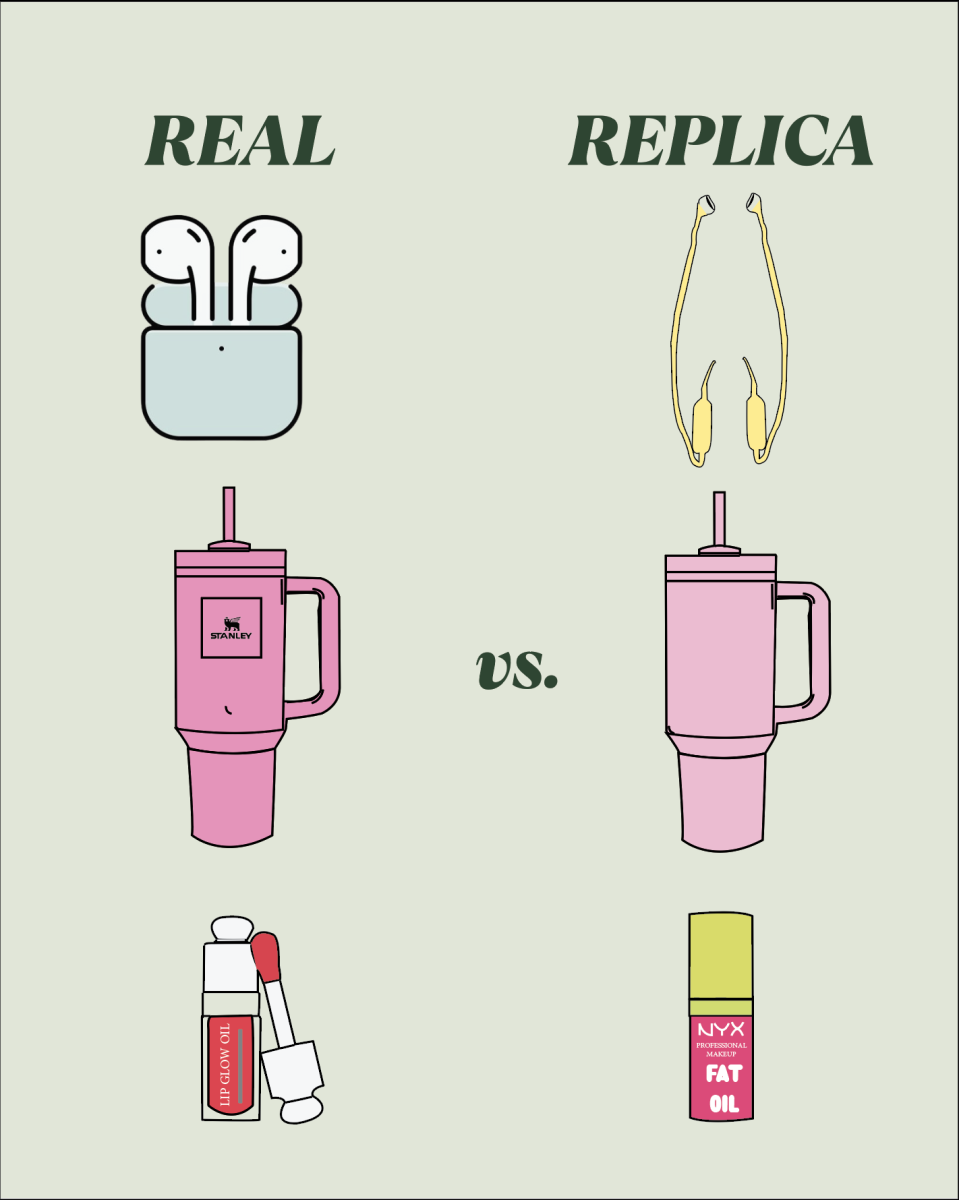Advocacy or Inaccuracy?
No one would’ve known about the death of George Floyd during the COVID-19 pandemic if not for social media. The popularity of the Black Lives Matter movement on social media brought light to racial discrimination and led to policies for police body-worn cameras and bias training.
Social media advocacy brings representation and proof of public opinion. It holds the power to shape the perspectives and opinions of people. It outlines problems in our society and brings them to our doorstep. It can start protests and revolutions, drive change and build a community of people with shared interests.
Previously stigmas on feminism, mental health and racism have been weakened due to the spread of hashtags such as #MeToo, #MentalHealthMatters and #StopAsianHate that brought light to these issues.
At Ladue, we occasionally receive an email advocating to join a club. Many of these clubs like advocate for global humanitarian aid and peace, leading students to become more educated and aware about the world around them.
With the next generations being raised on screens, at least they can grow up being aware of these topics and not shy away from them. Every advocate’s perspective can expand one’s horizons and prevent ignorant acts.
Nowadays, people no longer sit and watch the nightly news or tune into radio stations. New methods are used to spread information. Advocating on social media, such as a repost relating to a major news event, brings awareness and knowledge right to people’s feeds. Advocating for important real-life events helps everyone, regardless of wealth, influence, age or location, learn about what’s happening in the world in just a click.
The age-old phrase, “Don’t believe everything you see on the internet,” is the effect of the internet’s history of misinformation, lies, bias and deception—but it’s not a reason to downvote social media advocacy in the first place. Social media can also be educational, convenient and connective. True, there are those who don’t bother to check their sources on the internet, but finding news through social media, even if it may be biased or deceptive, can spur people to do their own research and stay well informed.
Every voice holds its own power, and social media provides a platform to represent that voice— and every voice, no matter how small, matters. Social media advocacy is just one way for you to spread awareness and influence people’s opinions. So if you have something to fight for, don’t be afraid to hit “post.”
Grinning faces, beachside sunrises and delicious food fill social media feeds. Imperfect moments and flawed appearances are seldom shown online. This is the reality of social media: it’s never completely accurate. So why do we trust the “news” we see on it? When you open Instagram now, people’s stories are flooded with frightening facts about discrimination in America and lengthy rants calling for change. But how do we know what to believe?
According to a 2022 study by the Reuters Institute, 29% of Americans think that journalists should incorporate their opinions into news stories on social media. News by definition is factual, not opinionated, yet social media is altering its meaning for the worse. Online, anyone can share their viewpoints and claim them as fact, while physical media such as newspapers are held to ethical standards that aren’t applied to general users on social media.
There’s no possible way that one striking statistic or a quick sentence stuffed with buzzwords can express the complexity of a current event. Yet people will see a post with big numbers and bright colors and add it to their Instagram story without a second thought. Reposters think they’re being advocates and spreading positive messaging, but they don’t even know if the claims they’re supporting are true.
On top of that, posts online rarely cause significant change. There are currently 17.5 million posts on Instagram under #BlackoutTuesday. This movement took social media by storm. Non-Black people posted black screens on their feed and promised not to post for the remainder of the day and instead reflect on how structural racism benefits them. However, the trend did more harm than good. People tagged their blackout posts with #BlackLivesMatter and #BLM, drowning out educational resources and necessary updates for protesters. In addition, the idea of quiet reflection acts against the Black Lives Matter movement, which encourages discussion against police brutality instead of contributions to the historic silencing of Black voices. Participants in the #BlackoutTuesday movement didn’t take the time to actually fight against racism; they instead took the easy way out by posting a picture on Instagram and pretending to make a difference.
While #BlackoutTuesday negatively affected its cause, the efforts against the ConocoPhillips Willow Project made no impact at all. Even though 761.3 million people viewed #WillowProject on TikTok and 5 million people signed the petition on Change.org against the oil drilling project, it was still approved by President Biden. The drilling will proceed and release roughly 9.2 million metric tons of carbon yearly.
Next time you want to fight for change, don’t just post on social media. Take real action. Attend a rally for a cause you support. If there isn’t a group fighting for an issue that you care about, start an organization with likeminded people. Write to government officials, urging them to take actions that protect your values. Encourage and inform your peers. Don’t just pretend to be an advocate when all you do is type on your phone from the comfort of your couch.










